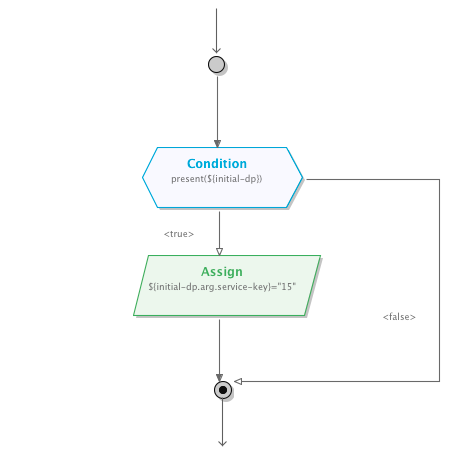You can create new user variables or assign new values to existing variables in an interceptor script block, the same way you can for a composition script block — by using the <assign> element.
|
|
Reassigning IN Signaling Parameters
If the value of any IN signaling parameters are changed in a |
Example
This example shows a script that invokes one service, changes the ServiceKey parameter of the IN InitialDP trigger event for the second service using an interceptor block, then invokes a third service (using the original service key value).
Script XML
<script>
<invoke service="VPN"/>
<invoke service="HomeZone">
<service-input-interceptor>
<if>
<present variable="${initial-dp}"/>
<then>
<assign toVariable="${initial-dp.arg.service-key}" value="15"/>
</then>
</if>
</service-input-interceptor>
</invoke>
<invoke service="Prepay"/>
</script>

